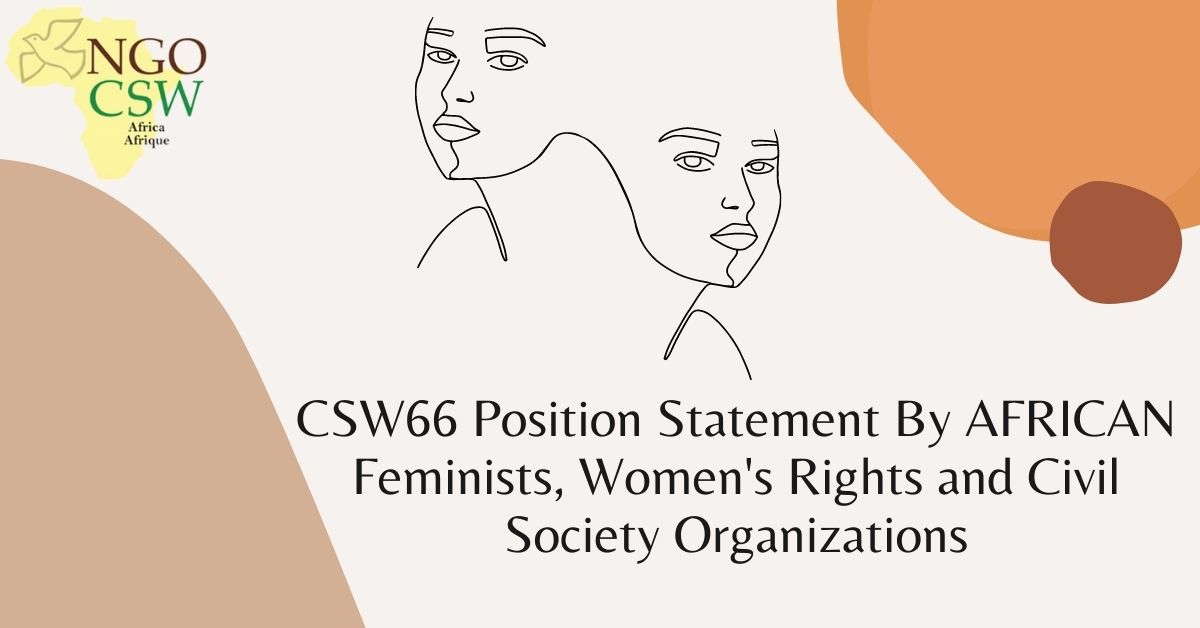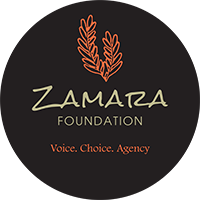
CSW66 Position Statement By AFRICAN Feminists, Women’s Rights and Civil Society Organizations
Acknowledging that Africa is the most vulnerable continent to climate change despite having contributed the least in creating this crisis and that African women in their different diversities have been and continue to be disproportionately affected.
Climate change is a significant setback to achieving the Sustainable Development Goals. During such disasters, women and girls are often left homeless and are condemned to destitution and extreme poverty. Moreover, the climate crisis compounds challenges women farmers face in gaining equal footing in the agricultural market where women and girls dominate labor contributions. Women do not have the same access to markets and credit.
Aware that women living in rural areas make up more than 70% of Africa’s poor[1]. These women are the ones most connected to food and primary agricultural production and they are also the most knowledgeable about the land, water resource, and biodiversity conservation. As a result, African women are the most vulnerable to climate change effects due to their dependence on the land, forest, and water resource-based livelihood activities. In addition, women face the most health-induced risks such as sexual and reproductive health due to climate change.
Recognizing that the key vulnerable sectors identified by the Intergovernmental Panel on Climate Change (IPCC) include agriculture, food, and water. Sub-Saharan Africa is expected to suffer the most not only in terms of reduced agricultural productivity and increased water insecurity, but also in increased exposure to coastal flooding and extreme climatic events, and increased risks to human health.
Recognizing that the continent is faced with exponential collateral damage, causing systemic risks to the economies, water and food systems, infrastructure investments, public health, agriculture, and livelihoods which weighs heavily on women whose lives and well-being are tied to the land and that these challenges are also rooted in systems of patriarchy and other systems of oppression including capitalism, neocolonialism, global imperialism.
Concerned that the climate crisis threatens to undo Africa’s modest development gains and disintegrate the continent into higher levels of extreme poverty, and gender inequality amidst ongoing armed conflicts and wars. This is why addressing the climate crisis requires that Africa is considered a special needs and circumstances region.
Concerned that most governments, particularly of the Global North countries which are solely responsible for the crisis are delaying their actions to address the climate change emergency.
